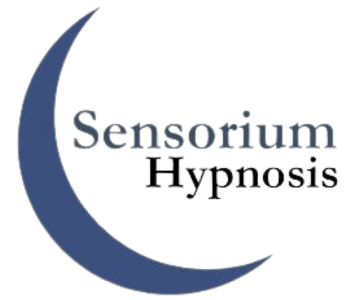“Resolving and releasing unhealed emotional trauma is the quintessential springboard for coping with outer world stress, most particularly grief & loss.” – www.sensoriumhypnosis.com
How we cope with grief and loss is largely dependent upon our overall wiring and mindset. How productively we move through the emotional stages of grief is related to our management of past trauma, the relationship we have with ourselves, and how authentically we’ve been living. Although I am referring to grief and loss in a traditional context, as in the death of a loved one, many of these concepts translate well to other life transitions like divorce, permanent injury, and chronic illness, severed relationships, job loss or retirement and even the aging process.
These insights not only come from years of working as a hypnotist, but years of working with injured workers in rehabilitation settings. I always wondered how two injured workers with similar injuries receiving the same medical interventions reported such different pain levels after being medically released back to work. Why were some patients able to transition smoothly back into life even amidst some changes while others needed significantly more time, resources, and physical/psychological rehabilitation? Were other underlying issues being triggered or reactivated? As I began digging into the details of patient’s lives, I noticed varying degrees of earlier life trauma, social support, lifestyle practices and themes, mental attitudes, and life philosophies that seemed to greatly influence how fear and change were managed.
The patients who were most emotionally resilient had greater levels of self-awareness, self-esteem, and confidence. They had better social support systems, personal relationships, and stronger spiritual beliefs. Of those with a history of childhood trauma, they had either addressed this formally through therapy or recovery programs or informally by intentionally creating a life quite different from their earlier life experience. They were neither ashamed to seek help and had a fierce sense of personal responsibly for their outcomes. Many openly articulated gratitude, even for the life lessons that came from hardships. I considered these patients rather spiritually advanced which likely made them more optimistic, even in the absence of many resources most people take for granted: education, dual income families, retirement benefits or other financial reserves, etc.
Those who reported higher levels of pain post-injury seemed to exhibit rather dark and defeatist attitudes, had limited personal relationships and an overall distrust of others. They often complained about their employer, their job, their co-workers, their doctors, and reported strained marriages and broken family ties. Injustice, betrayal, and victimization were recurrent themes in their life, and they seemed to lack the tools, inner resources, or inspiration to create better outcomes. In working with this group, it became abundantly clear to me the impact of emotional stress and unhealed trauma on physical recovery. You can learn more about the mind/body connection from Dr. John Sarno, a pioneer in rehabilitation medicine.
This experience was the seed of wisdom that broadened my understanding of the mind/body connection. It also highlighted the importance of resolving and releasing past emotional trauma as the quintessential springboard for managing all present and future outer world stressors, most particularly grief and loss. Our unhealed trauma is imprinted into the emotional/mental/cognitive hardwiring of our primitive brain and will most assuredly impacts how we think, feel, adapt, and react to life. In fact, the primitive brain cannot differentiate between real and perceived danger and if left unattended, will keep us in a state of fight or flight long after a traumatic event occurs. This is the point in which individuals often develop physical symptoms and conditions because of the toll it takes on the immune system.
Hypnosis can help clients overcome the collateral emotional/mental damage caused by past trauma. It is considered the gateway to the subconscious mind where old unhealthy programming festers, where conflicts are resolved, and new healthier programming is developed. This creates the most fertile ground for shifting thoughts and beliefs, which over time translates to self-directed and self-empowering solutions and behavioral changes. As a “root cause” therapy, the impact of this self-healing work permeates multiple areas of one’s life and continues to unfold long after a client phases out of sessions.
What can you do to promote hope and healing in your journey through grief and loss? Focus on building and maintaining a social and emotional support system, learn how to ask for what you need from others and accept help, explore or deepen your spiritual practices, invest in self-improvement and mind-expanding activities, and spend time with spiritually and emotionally grounded people who will strengthen your light and reinforce all the best parts of you.
#griefcounseling #griefstages #healingtrauma #emotionalregulation #emotionalresilience #hypnosis #healingfromgriefandloss #recoveringfromlossofalovedone #grieftherapist #copingwithgriefandloss #journeythroughgriefandloss #griefandlossrecovery
Interested in more articles about hypnosis & alternative healing? Sign-up for my newsletter and get a free meditation video tutorial: https://mailchi.mp/32efe1131972/new-subscriber-meditation-video-offer
Would you like to explore how hypnosis can improve your life? Visit my website homepage to learn more or book a free 30-minute consultation: https://www.sensoriumhypnosis.com
New to hypnosis? Learn more here: Four Common Myths about Hypnosis: Breaking through the Barriers of Resistance – Sensorium Hypnosis & Mediumship, LLC
- Spirit-Assisted Dream Interpretation: Unlocking the Soul’s Messages Through Hypnotherapy & Higher Guidance - June 26, 2025
- Spiritual Hypnotherapy and the Shift from Religion to Soul-Centered Living - May 13, 2025
- The Spiritual Cost of Overconsumption: Why Simplicity Attracts True Abundance - May 11, 2025

